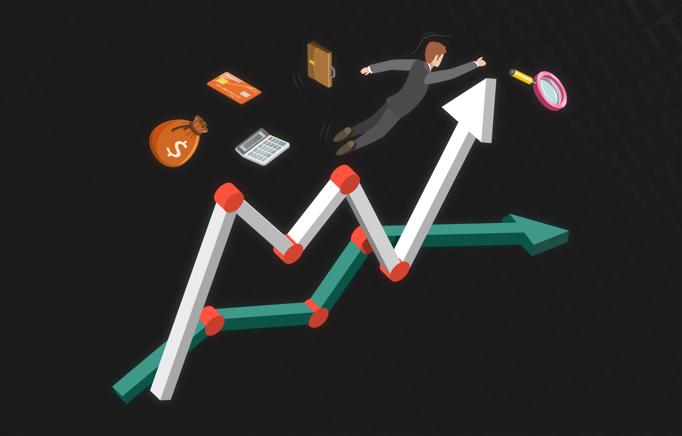What is a historical volatility?
Crypto for Beginners
Other articles
Historical volatility is a statistical measure of the dispersion of returns over time for a certain securities or market index. In general, this metric is computed by calculating the average departure from a financial instrument's average price during a certain time period. The most prevalent, although not the only, method of calculating historical volatility is to use standard deviation. The riskier the security, the greater the historical volatility value. However, risk goes both ways—bullish and bearish—so this isn't always a negative thing.
Although it may be used to do so, historical volatility does not directly assess the chance of loss. It does, however, track how much a security's price deviates from its mean value.
Historical volatility in trending markets refers to how much traded prices deviate from a central average, or moving average, price. This is how, even when prices move rapidly over time, a highly moving yet smooth market can have minimal volatility. It’s worth does not alter substantially from day to day, but it does change gradually over time.
This metric is typically used in conjunction with implied volatility to evaluate whether options are overvalued or undervalued. All forms of risk appraisals employ historical volatility. High historical volatility stocks typically necessitate a larger risk tolerance. Furthermore, markets with high volatility necessitate broader stop-loss levels and probably greater margin requirements.
HV is frequently utilized as an input in other technical studies, such as Bollinger Bands, aside from option pricing. In reaction to variations in volatility, as measured by standard deviations, these bands shrink and extend around a central average.
Although volatility has a negative connotation, many traders and investors can benefit more when volatility is high. After all, if a stock or other investment does not move, it has low volatility but also little capital gain potential. On the other hand, a stock or other investment with a high amount of volatility might provide substantial profit potential at a significant expense. Its potential for loss is equally enormous. Any deal must be executed perfectly timed, and even a right market call might result in a loss if the security's huge price fluctuations trigger a stop-loss or margin call.
Volatility levels should thus be somewhere in the centre, which fluctuates from market to market and even from stock to stock. Comparing similar securities might help decide what degree of volatility is considered normal.
Important factor to check also when talking about historical volatility, are historical high and low. With that a trader can determine, what was the previous highest and lowest price of an asset and thus decide easier, if something is a good investment. Especially after corrections, trader can have better idea of where the price can go, if it would return to at least to a point where it started falling.


